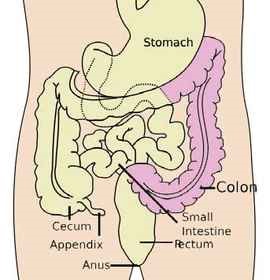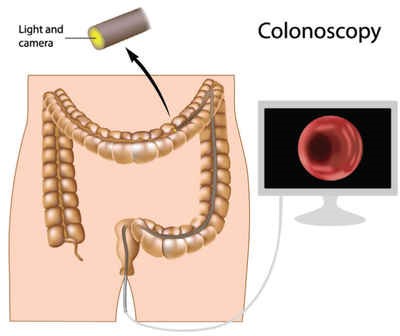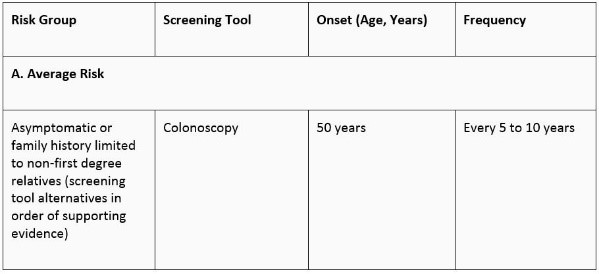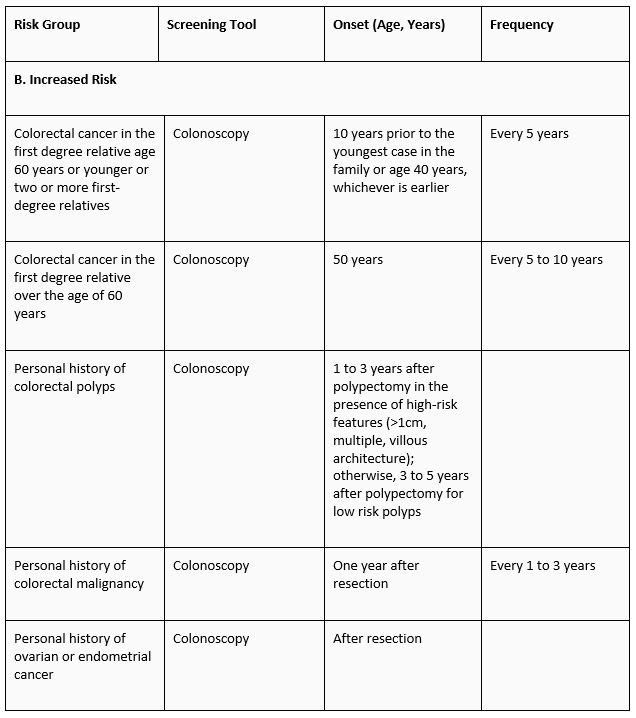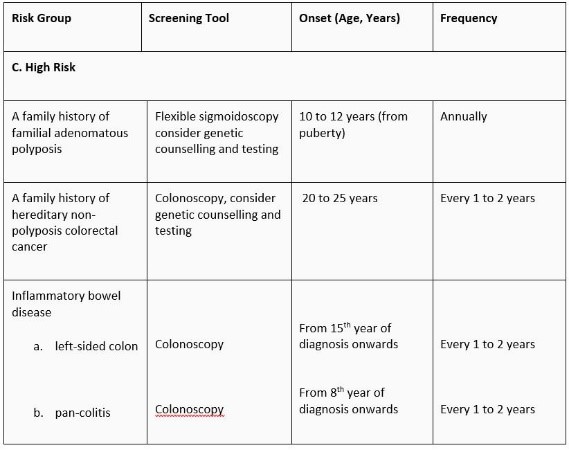Faecal Immunochemical Test (FIT)
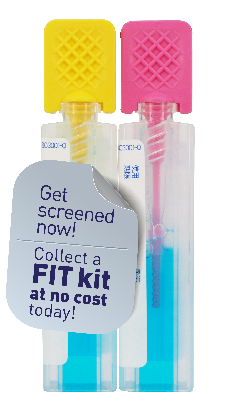
The FIT test checks for hidden blood in the stool, which can be an early sign of Colorectal Cancer. The test comes in a simple kit and can easily be carried out in the comfort of your own home. Another advantage is that dietary restriction is not required in immunochemical testing. The FIT test needs to be done annually to be an effective screening test.
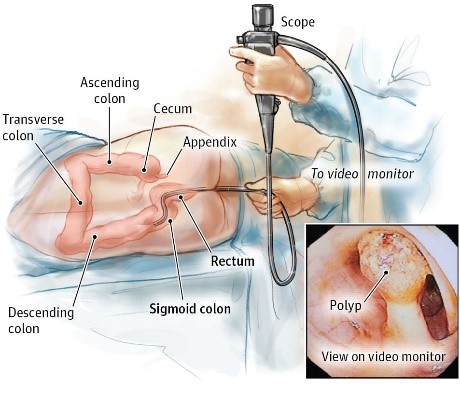
Colonoscopy
A colonoscopy is a procedure that enables your doctor to examine the lining of your colon for abnormal growths. A soft and flexible tube, about the thickness of a finger, is gently inserted into the anus and advanced in. The tube has a built-in camera that allows your doctor to see your colon. The procedure usually takes about 15 to 30 minutes to complete.
The main advantages are its high sensitivity and specificity and the long recommended screening interval of 10 years. The protective effect of colonoscopy is attributed to the ability to remove asymptomatic polyps before malignant transformation occurs.
Usually, bowel preparation takes 1 of 2 forms: high-volume (3-4 litres) polyethene glycol (PEG) or low-volume (90 ml) oral fleet. Oral fleet is contraindicated in patients with renal impairment due to its high phosphate content. For suitable patients, it is a more palatable option as it can be mixed with sweetened fluids. Patients taking oral fleet must be encouraged to drink plenty of water to decrease the likelihood of phosphate toxicity.
General advice to patients on bowel preparation for patients undergoing colonoscopy:
Oral medications which need to be stopped before colonoscopy:
- Iron supplements (1 week before appointment)
- Anticoagulation medications e.g. aspirin, ticlid, warfarin (5 days before the appointment)
Patients should go on a low fibre diet 3 days before colonoscopy, and avoid:
- Fruits and vegetables including fresh fruit and vegetable juices
- Vegetable soup
- Red meat
- Milk products
- Cereals and grains e.g. oats, bran, wheat, muesli, barley, nuts and beans
Foods allowed include:
- Simple carbohydrates (white rice, white bread, mee sua, bee hoon, kway teow, potatoes)
- Fish
- Plain coffee, tea, glucose, honey or clear soup
Colonoscopy is the gold standard for large bowel evaluation. The screening interval for colonoscopy is 10 years. Bowel preparation with low-volume oral fleet is feasible in the absence of contraindications.

